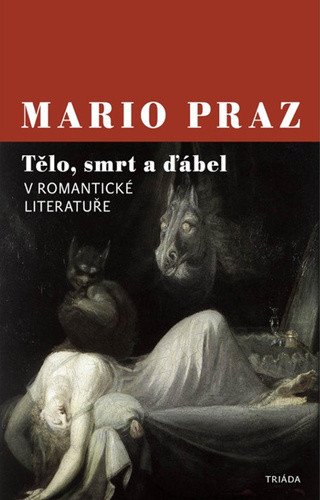Beschreibung
The book is based on the belief that 19th-century literature represents an organic whole, the unity of which is obscured or fragmented by established formulas such as romanticism, verism, and decadence.
A characteristic moment of this unity is the orientation of romantic and post-romantic imagery on the theme of gender.
Praz analyzes this phenomenon in a series of penetrating chapters. The first chapter is dedicated to 'the beauty of Medusa,' i.e., beauty that evokes dread or sadness – a motif that can be found in a long line of texts from Goethe and Shelley to Baudelaire and D'Annunzio.
The second chapter is devoted to the metamorphoses of 'Satan,' an ancient symbol (Tasso, Marino, Milton, Blake, etc.) that comes alive again as a symbol of transgression in the romantic figures of outlaws, 'fateful men,' or in the phenomenon of vampirism.
Sadistic tendencies are examined in the chapters 'In the Sign of the Divine Marquis,' 'La belle dame sans merci,' and 'Byzantium.' The corpus of systematic and meticulous analyses is concluded with a chapter dedicated to D'Annunzio and his 'sensual love for words.'
Praz's book belongs to the now-classic great syntheses like Curtius's European Literature and the Latin Middle Ages, Frazer's The Golden Bough, or Burckhardt's...
A characteristic moment of this unity is the orientation of romantic and post-romantic imagery on the theme of gender.
Praz analyzes this phenomenon in a series of penetrating chapters. The first chapter is dedicated to 'the beauty of Medusa,' i.e., beauty that evokes dread or sadness – a motif that can be found in a long line of texts from Goethe and Shelley to Baudelaire and D'Annunzio.
The second chapter is devoted to the metamorphoses of 'Satan,' an ancient symbol (Tasso, Marino, Milton, Blake, etc.) that comes alive again as a symbol of transgression in the romantic figures of outlaws, 'fateful men,' or in the phenomenon of vampirism.
Sadistic tendencies are examined in the chapters 'In the Sign of the Divine Marquis,' 'La belle dame sans merci,' and 'Byzantium.' The corpus of systematic and meticulous analyses is concluded with a chapter dedicated to D'Annunzio and his 'sensual love for words.'
Praz's book belongs to the now-classic great syntheses like Curtius's European Literature and the Latin Middle Ages, Frazer's The Golden Bough, or Burckhardt's...
Information
Author: Praz Mario
Publication date: 13. Februar 2025
Manufacturer: Nakladatelství Triáda, s.r.o.
Genres: Novels, Books, Fiction, World fiction
Type: Hardcover books
Pages: 647
ISBN/EAN: 9788074744372

